Stake Decentralization — Terra
Home
Blogs
Terra 2.0
Stake Decentral...
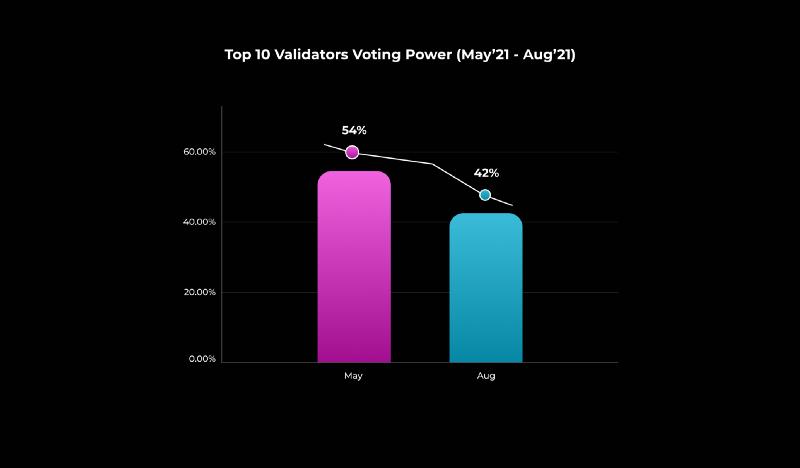
Stake Decentralization — Terra

At Stader, we believe stake decentralization is absolutely essential for the long term sustainability and security of DPoS network, especially if it is a network like Terra, which aims to be the hub for most dominant crypto native decentralized stablecoins.
In this issue of Stader Bites, we discuss the stake decentralization efforts on Terra.
The #LUNAtic community continues to grow rapidly, Terra currently has over ~2.8 million accounts and is adding around 50K new user accounts every month. The delegator base on Terra has grown by 10X in 2021 and has been growing over 25% in the last three months, with 37% of the total Luna staked across 130 validators by ~ 61K delegators.
As Luna ecosystem explodes and UST becomes the de-facto stable coin for cross-chain DeFi activity, stake decentralization is starting to become a topic of interest and priority in the community.
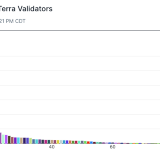
We did a deep dive on change in stake distribution of Luna in last few months and we present below our findings on the effect of various incentives like targeted airdrops favoring delegations with smaller validators and airdrops or promotional offers from smaller validators.
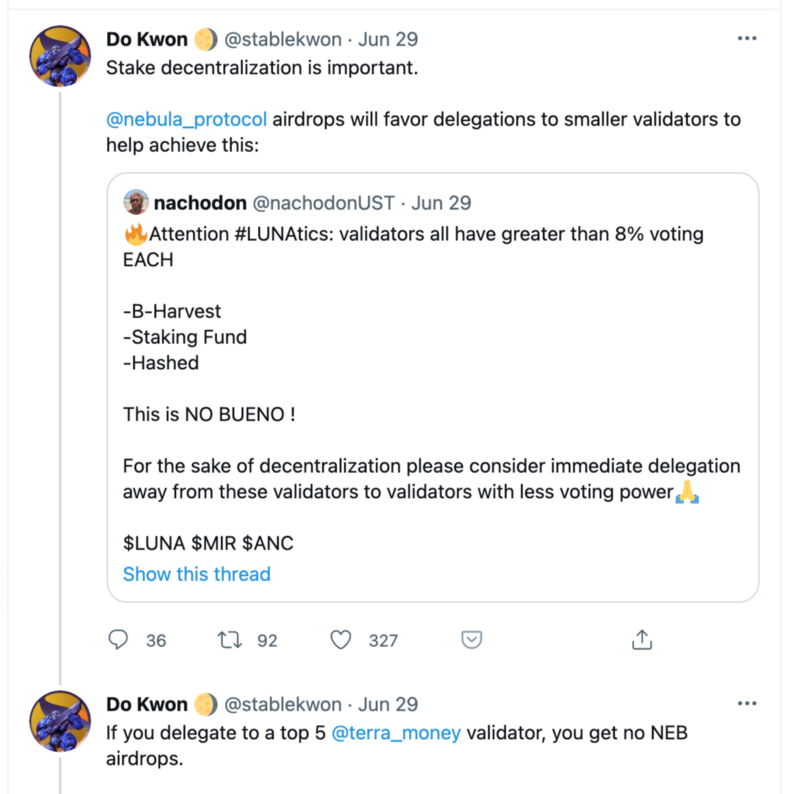
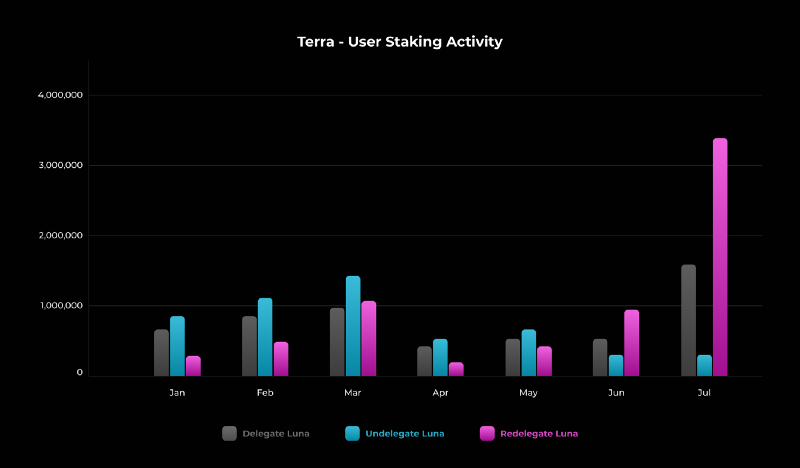
There’s been an improvement in the stake spread across validators, however the top 10 validators, still hold more than 40% of the voting power & there is an opportunity to further spread the stake.
If you are a delegator who want to contribute to stake decentralization without any incentives, you would need to split your stake across multiple validators, this would enable spreading the voting power and in turn decentralizing the stake, thus increasing the security of the network.
However, this is not an easy thing to do, as currently delegators face several obstacles or unknowns like:
- Absence of high quality data or metrics around validator operating metrics, commission rates and slashing risk
- UX around splitting stake across multiple validators
- UX and UI around self-custodial stake management
At Stader, we are building products and platform which solves for these core problems, by providing one click convenient staking across curated validator indices with additional features for automated smart stake management and transparency around validator metrics.
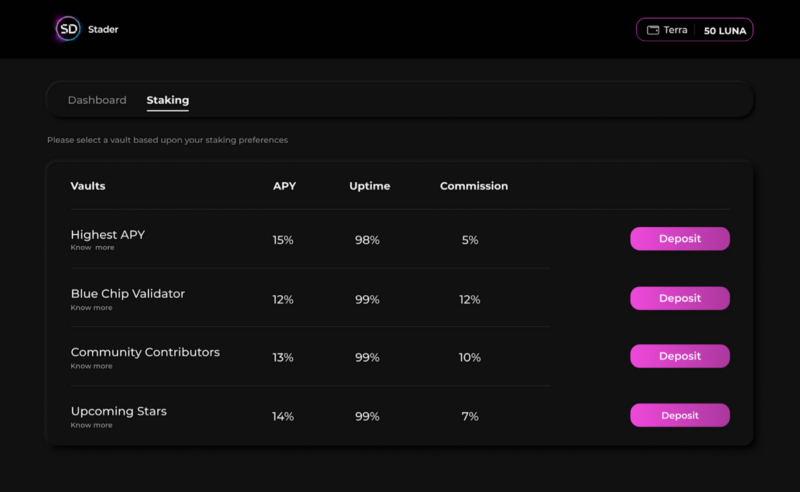
We also intend to provide further strategies and features on top of these Vaults like auto-compounding, DeFi on staking rewards, airdrop management and few others.
Stader aims to be a long term partner for Terra Network and build solutions which enable the network achieve optimal stake decentralization as it scales.
It is incredible to see the progress so far and we are excited to be a key contributor going forward!!!
By:
Stader Labs
Join Stader’s newsletter
Get the latest updates, new DeFi strategies and exclusive offers right in your email box
Analytics
© Copyright 2023 Stader. All rights reserved.











